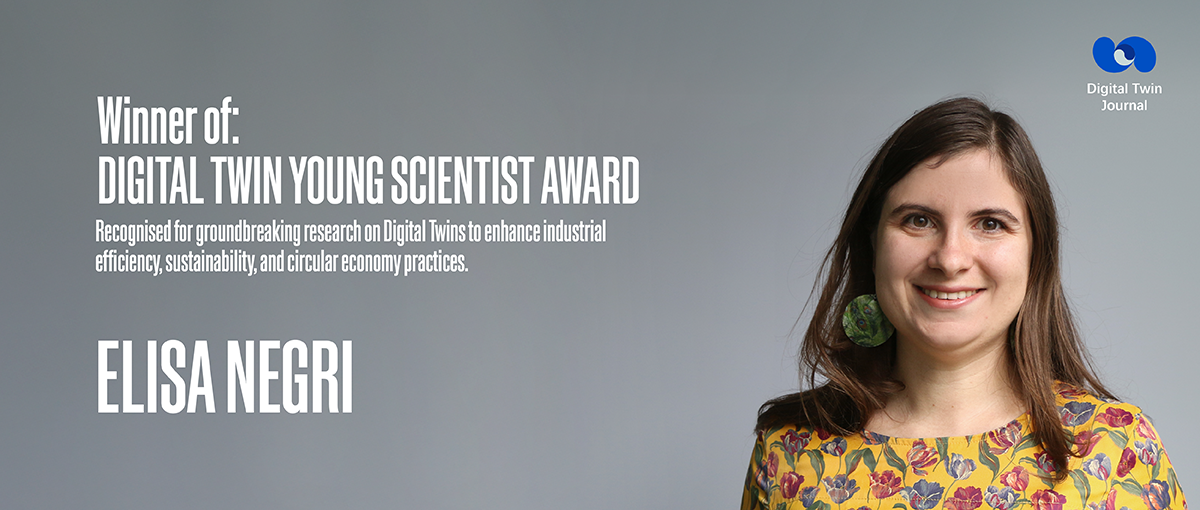
At the international DigiTwin 2024 conference, Elisa Negri, a researcher from the Politecnico di Milano, was awarded the “Digital Twin Young Scientist Award” for her pioneering studies on the use of Digital Twins in industrial production management, contributing to improvements in efficiency, sustainability, and circular economy practices.
DigiTwin is a prestigious international event that brings together companies from various sectors to share their experiences and needs in industrial applications, promoting the adoption of Digital Twin technology across diverse fields such as design, manufacturing, biomedicine, urban planning, energy, civil engineering, and more.
The 4th edition of DigiTwin, held from October 14 to 18, 2024, at the Politecnico di Milano, saw Elisa Negri, a researcher at the POLIMI School of Management, receive the prestigious “Digital Twin Young Scientist Award” for her significant contributions to the use of Digital Twins in managing production systems.
Since 2017, Elisa Negri has been conducting research on the role of “Digital Twins” in managing and controlling production systems.
These so-called “Digital Twins” are gaining increasing interest from both academic and industrial spheres due to their potential applications. They are virtual models that include data, algorithms, and carefully designed simulators that allow for “mirroring” real-world events in the digital realm. This enables the exploitation of data processing capabilities, scenario simulation, and the monitoring of deviations from predefined pathways.
Negri’s work is part of a research stream focused on demonstrating and quantifying how Digital Twins can simplify, enhance, and accelerate decision-making in managing production systems throughout their entire lifecycle—from design and commissioning to operations, maintenance, and eventual decommissioning, with a focus on circular practices.
The role of Digital Twins in decision-making is multifaceted, ranging from supporting monitoring activities to predicting future scenarios, optimizing parameters, and prescribing optimal actions.
The demonstrated benefits of using Digital Twins for production management include improved productivity (particularly through integrated management of production and maintenance), enhanced environmental and social sustainability (by reducing material and energy consumption and improving the working conditions of factory personnel), and the facilitation of circular economy practices in manufacturing.






